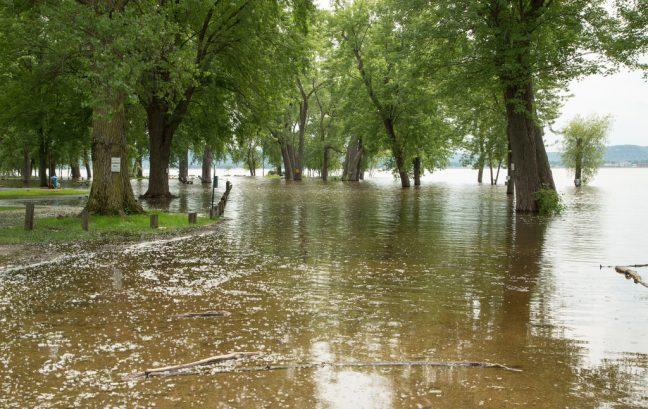Since June, Pakistan has been facing the relentless horrors of heavy monsoons and floods covering one-third of the country. Even after the rains eased near the end of September, Pakistani communities have continued to experience major flooding, causing the destruction of millions of houses, hospitals, roads and bridges and the displacement of families. Meanwhile, diseases like malaria, polio, asthma, COVID-19 and dengue fever terrorize the population, especially children.
Last month, the death toll totaled over 1,700, with 33 million people affected by the disaster. As centuries of human history could predict, those taking the brunt of these effects are those who were struggling economically in the first place.
While families with the means could relocate themselves to urban areas safe from rising waters and the dangerous illnesses brought with it, those without had nowhere to go. Flood warnings offered no help to people forced to stay with their homes, livestock and families because they could not afford to pay for transportation or to risk the loss of their livelihoods. Of course, the people with the least to lose are the people with the most at stake.
The current situation in Pakistan is an immense humanitarian crisis garnering much less attention than it deserves. There are many agencies rushing to provide food and shelter to those without, but they need funding to reach more people.
But, emergency relief is only a temporary solution to a long-term and continuous issue — climate change.
The floods Pakistan is experiencing are a severe climate crisis caused by global warming. The warming of the earth due to human activities creates more rainfall worldwide as higher temperatures melt more ice and evaporate more water. This summer, the flooded regions of Pakistan received approximately eight times more rain than usual.
The tragic irony of the catastrophe in Pakistan is that the country contributes less than 1% of global greenhouse gas emissions. Yet, according to the Global Climate Risk Index from 2021, Pakistan is ranked 8th on the list of nations most affected by global warming.
These contradictory statistics are a prime example of climate injustice. Climate injustice occurs when climate change impacts various communities and demographics disproportionately in a manner that often intersects with class and racial justice issues. It is a problem for which the whole world holds responsibility and accountability.
One shared Earth means shared responsibility. In contrast to Pakistan, the United States is accountable for 15% of global carbon emissions. The carbon footprint of each American corporation and citizen adds up. Fuel-consuming lifestyles can and are defining the future for everyone. As University of Wisconsin professor Stephen Young explains to his international studies students on his Global Madison Tour, the whole world is connected.
One of the stops on this tour brings to light how Pakistan is not the only area that has gotten significantly more rainfall recently – Madison has, too. Madison’s average rainfall used to be about 32 inches per year. Today, the average is up to 40 inches.
To make matters worse, Madison’s location on an isthmus is particularly vulnerable to flooding. Many people remember Madison’s disastrous 2008 flood, where 31 counties were declared a federal disaster area and thousands of businesses and residences were damaged. Madison flooded again in 2018 when 11.63 inches of rainfall in a 24-hour period neared Wisconsin’s 1946 record of 11.72 inches.
Like in Pakistan, low-income communities in Madison were hit hardest. Apartment buildings in one of Madison’s lower-income neighborhoods, which is also one of the city’s most racially diverse neighborhoods, never fully recovered from the 2008 flood.
UW instructor and nurse Jessica LeClair visited the families in these buildings when elementary school students were increasingly missing school due to asthma and other breathing issues. The basement and yards still flood easily with just a few inches of rain, but the families requested no building inspections to solve the problem due to fear of eviction.
Like the lower-class families in Pakistan, these families are trapped in poor living conditions by their socioeconomic status – poor living conditions that result from the actions and decisions of business leaders, big corporations and politicians from the upper strata of society.
Injustices such as these will only worsen as global warming intensifies. Climate change will continue to get more extreme unless people take responsibility for their carbon footprint by utilizing the power of their dollar and the power of their vote.
Until then, natural disasters are becoming more frequent across the world, spreading their destructive reach. The next one could affect a community 7,000 miles away or reach your area code.
It is on all of us to work towards saving our planet. It is on all of us to work together to save each other.
Donation options to support emergency relief funds:
- Donate to UNICEF here.
- Donate to Aghosh USA here.
- Donate to Humanity & Inclusion here.
- Donate to the International Medical Corps here.
Isa Whitten is a freshman studying education studies.








